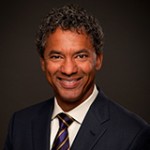Expert Interview – Maria Elena Sanz Ibarra , HR Director, Ministry of Transportation and Telecommunications, Chile
 For the report Performance Management in 2013, The KPI Institute conducted 20 semi-structured interviews with practitioners, academics and consultants from 18 countries, who offered rich insights into the state of Performance Management as a discipline.
For the report Performance Management in 2013, The KPI Institute conducted 20 semi-structured interviews with practitioners, academics and consultants from 18 countries, who offered rich insights into the state of Performance Management as a discipline.
One of the main editorial rules followed in the development of the content is that a discipline can only evolve through the combined efforts of practitioners, academics and consultants. Maria Elena Sanz Ibarra , HR Director at the Ministry of Transportation and Telecommunications in Chile was one of the practitioners that The KPI Institute has interviewed.
1. What does the term Performance Management mean to you?
Performance Management for me is a key process in people management, as it makes it possible to align people performance with short and long term organizational goals.
2. What drives interest in Performance Management?
The elements that drive interest in Performance Management are the following: the organizational need to have formal systems and processes to ensure the achievement of short and long term organizational goals and the employees’ need to have a clear vision on how they can contribute to the organizational strategy.
3. What are your thoughts on the relationship between Performance Management at organizational, departmental and individual level?
Performance Management is a key element for organizations today since business, the markets and also the relations with stakeholders are immersed in global and changing environments that move really fast. Today organizations need to focus on the short term strategy while re-thinking the long term one continuously. The process of strategy planning must be continuously reviewed on year term basis and the link with Performance Management is key (1) at organizational level in order to deploy strategy in long term goals, (2) at departmental level to set priorities intra- and inter- business units avoiding silos and (3) at individual level, to have a clear sense of contribution.
4. What are 2013 key trends in Performance Management from your point of view?
Bottom up and co-creation by implementing Collaborative processes in the definition of goals and initiatives.
5. What aspects of Performance Management should be explored more through research?
How 2.0 technologies make that need of co-creation possible in big organizations.
6. Which companies would you recommend to be looked at due to their particular approach to Performance Management and subsequent results?
Ministerio de transportes y telecomunicaciones (Ministry of Transportation and Telecommunication –editor’s note) of Chile has a very good practice in how strategic planning and Performance Management are helping to the modernization of a public institution. The co-creation in the strategic planning process has been a pillar in the modernization and transformation process of the institution.
7. Which are main challenges of Performance Management in practice today?
A challenge is considering the value of collective intelligence.
8. What do you think should be improved in the use of Performance Management tools and processes?
- How to share vision, values and strategy to build a shared set of targets that would help to align organizational, departmental and individual performance.
- Monetary and emotional salary also must be taken in consideration
9. What would you consider best practice in Performance Management?
An example of good practice is improving the emotional salary strategies.
10. Which aspects of Performance Management should be emphasized during educational programs?
- Performance Management and leadership
- Performance Management and collective intelligence
- Performance Management and emotional salary
11. Which are the limits in order to achieve higher levels of proficiency in Performance Management among practitioners?
The only limit is the organizational barriers to change and the traditional structures. This can be solved by moving to new organizational models based on networks and knowledge.
12. If you are to name in few words the main aspects governing Performance Management today, what would they be?
Strategy, performance, engagement, collective intelligence, co-creation and emotional salary.
13. Which are the recent achievements in generating value as result of Performance Management put in practice in your organization?
Performance Management has been a key pillar in the modernization and transformation process that the organization is facing, where knowledge and people contribution play a key role.
For more interviews with professionals from all over the world, access Performance Management in 2013

Tags: Ministry of Transportation and Telecommunications, Performance in Chile, Performance Management in 2013, The KPI Institute




